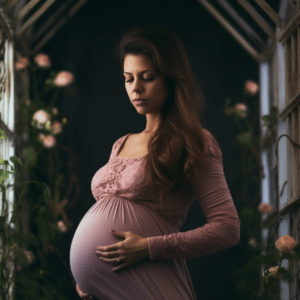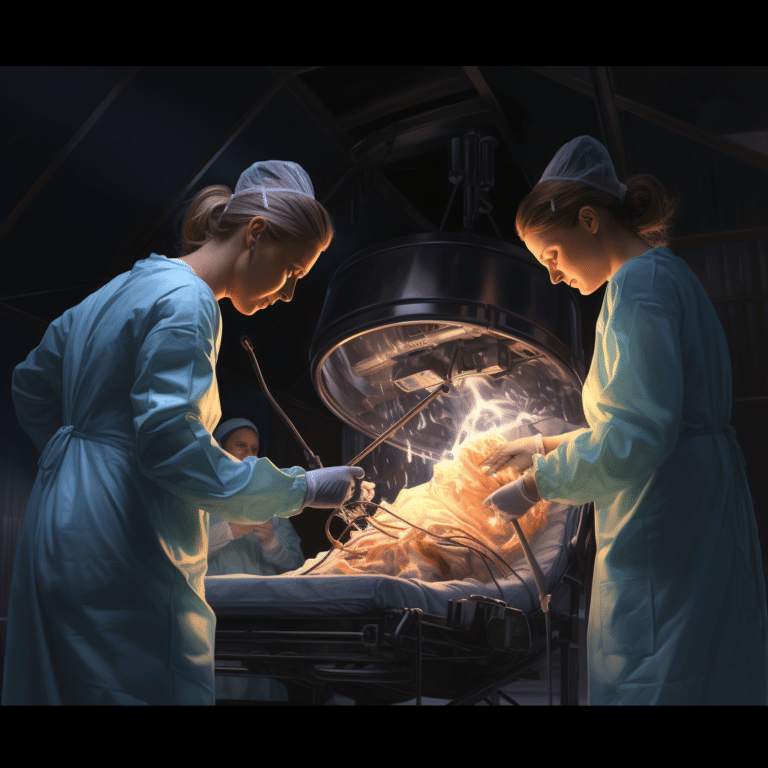Navigating Late Pregnancy: Recognizing Symptoms and Self-Care
Late pregnancy brings unique symptoms for each mom-to-be. Knowing these signs is key for moms and baby’s health. Swelling and edema in feet and ankles are common and caused by fluid retention as body prepares for birth. Backaches and pelvic pain too, as the baby grows and puts pressure on spine and muscles. Frequent urination occurs as uterus expands and presses against bladder. Sleep issues may happen due to hormonal changes or physical discomfort. So, it’s important to recognize these symptoms and get help from healthcare professionals. Ignoring them could lead to bad consequences. Stay informed and prioritize self-care during this important period!
Understanding Late Pregnancy

Late pregnancy, also known as the third trimester, brings with it many changes. It’s important to understand these changes for a smoother transition.
As the due date approaches, pregnant women may experience lots of discomforts. These include frequent urination, backaches, and swollen feet. The expanding belly puts pressure on the bladder, straining the spine, and fluid retention can cause feet to swell.
Emotions can also be intense. Anxiety about labor and delivery, excitement mixed with nervousness about becoming a parent, and mood swings are common. Hormones can amplify these feelings.
Shortness of breath, heartburn, and Braxton Hicks contractions (false labor pains) may also occur.
Pro Tip: Good posture and light exercise can help. However, always get advice from healthcare professionals before starting any exercise routine to ensure safety.
Common Symptoms of Late Pregnancy
Late pregnancy brings peculiar signs. These are clues of when the baby is due and their arrival. We’ll discuss some here:
- Urinating more: The baby taking up space in the uterus presses on the bladder. This makes one need to urinate often. It can disrupt daily plans.
- Backache: The extra weight causes pain and discomfort in the back muscles and spine. Gentle exercises and correct posture may help.
- Swelling: The hands, feet, and ankles swell due to fluid retention. This is from hormones and increased blood flow.
- Tiredness: The baby needs lots of energy. Late pregnancy brings extreme fatigue. Sleep is harder due to hormones and discomfort.
It’s important to note that each pregnancy is different. Not all will have the same symptoms. If unsure or experiencing something unusual, consult a health professional.
My sister experienced backache in late pregnancy. It made daily tasks hard. She visited a prenatal chiropractor expert. Adjustments tailored for pregnant women helped her backache. This improved her health before the healthy baby boy arrived.
Managing and Alleviating Symptoms
Late pregnancy can be challenging, but there are ways to ease discomfort and promote well-being. Here are some effective strategies:
- Stay active! For example, walking or prenatal yoga can reduce swelling, improve circulation and help with back pain. Ask your healthcare provider before starting any exercise.
- Be mindful of posture. Good posture can reduce back pain and pressure on the pelvis. Use pillows or cushions for support when sitting or lying down.
- Drink lots of water! Aim for 8-10 glasses a day. This helps prevent constipation, reduces swelling and promotes healthy digestion.
- Get enough rest. Prioritize sleep and use pillows to support your body. Find a comfortable position on your side.
Wear comfortable clothing and footwear. Also, eat nutrient-rich foods. Relaxation techniques such as deep breathing or prenatal massages can reduce stress. Check with your healthcare provider before trying any new methods.
Every pregnancy is unique. Listen to your body’s needs and seek guidance from medical professionals for the best care.
Fact: About 50% of pregnant women experience back pain.
When to Seek Medical Attention

As your pregnancy progresses, take heed: seeking medical attention is key to both mum and baby’s health. Ignoring signs of trouble can bring serious consequences. Here are some red flags:
- Tummy pain or cramping that won’t quit? It could be a placental abruption or preterm labor.
- Heavy bleeding? It could be a miscarriage or placenta previa.
- Swelling of the face, hands, or feet? Beware preeclampsia.
- No movement for a while? That’s a no-go – seek help immediately.
Every pregnancy is unique, and everyone has different warning signs. Don’t ignore any strange symptoms – your wellbeing and baby’s come first.
Conclusion
Late pregnancy can bring a range of symptoms. Discomfort, fatigue, frequent urination, and swelling are common. Pregnant women might also feel back pain, shortness of breath, and difficulty sleeping. It’s important to take care of oneself by doing gentle exercise and having good posture.
The American Pregnancy Association[1] published a study showing that these common symptoms often indicate the baby is coming soon. The body goes through wonderful changes in preparation for labor and delivery.
It’s important to remember that every pregnancy is unique. These normal symptoms should not cause too much worry. But if there are unusual or severe symptoms, it’s best to get medical help right away to ensure the safety of mother and baby.
[1] American Pregnancy Association – https://americanpregnancy.org/
Frequently Asked Questions
1. What are the common symptoms of late pregnancy?
Common symptoms of late pregnancy include frequent urination, backache, pelvic pressure, swollen ankles and feet, difficulty sleeping, and Braxton Hicks contractions.
2. Is it normal to have increased urination during late pregnancy?
Yes, it is normal to experience increased urination during late pregnancy. As the baby grows, it puts pressure on the bladder, resulting in the need to urinate more frequently.
3. Why do I have swelling in my ankles and feet during late pregnancy?
Swelling in the ankles and feet is common during late pregnancy due to increased blood volume and pressure on the veins. It can be relieved by elevating legs, avoiding standing for long periods, and wearing comfortable shoes.
4. What causes backache in late pregnancy?
Backache in late pregnancy is usually caused by the strain on the muscles and ligaments that support the growing uterus. Hormonal changes and the shift in the center of gravity also contribute to backache during this period.
5. What are Braxton Hicks contractions and are they normal in late pregnancy?
Braxton Hicks contractions are mild, irregular contractions that often occur in the third trimester of pregnancy. They are considered normal and usually not painful. However, if they become regular or intensify, it may indicate preterm labor and should be discussed with a healthcare provider.
6. How can I manage difficulty sleeping during late pregnancy?
To manage difficulty sleeping during late pregnancy, try using extra pillows for support, practicing relaxation techniques before bedtime, maintaining a regular bedtime routine, and avoiding caffeine and heavy meals before sleep.





